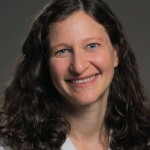Tolerance of minimal disease in a child is undesirable because chronic, subtle, ongoing disease activity is likely to result in substantial disability over a patient’s lifetime.
Model of Care
Pediatric rheumatology clinics commonly feature a team of social workers, physical and occupational therapists, and/or child life specialists to improve the rheumatologic care and overall well-being of patients. For example, social workers embedded in pediatric rheumatology clinics are trained to provide emotional support to children living with chronic illness, promote medication adherence, facilitate transportation to and from visits, and encourage formal psychiatric care when appropriate.
Adult rheumatology clinics rarely have a dedicated, on-site social worker and generally refer patients to outside clinics or online resources on an as-needed basis for physical therapy and other ancillary services.
As a result, patients transitioning from pediatric to adult care may perceive a void and may benefit from early referrals to ancillary services, direct assistance in building their own multidisciplinary teams and identification of a point person or navigator to whom they can turn first with questions.
Conclusion
The process of transferring young adult patients from pediatric to adult rheumatology care is complex. In this article, we focused on differences between pediatric and adult rheumatology practices, which can create challenges for patients and families as they leave a familiar setting with one set of rules and arrive in a foreign environment with a whole new set of rules.
Variations in practice philosophy, clinic policies and procedures, medical practices and clinical environments can result in patient confusion, anxiety and dissatisfaction.3 These patient perceptions, regardless of the intent of providers, can alienate patients and lead to loss of follow-up and poor disease outcomes.
We call upon both pediatric and adult providers to learn about the care that patients receive across the age spectrum and to help create a bridge over troubled transition waters, with the goal of guiding patients more intentionally from pediatric to adult rheumatology care. The health of our patients depends on it.
 Sarah D. Bayefsky, MD, is a second-year adult and pediatric rheumatology fellow at the University of Pennsylvania and Children’s Hospital of Philadelphia.
Sarah D. Bayefsky, MD, is a second-year adult and pediatric rheumatology fellow at the University of Pennsylvania and Children’s Hospital of Philadelphia.
 Kimberly DeQuattro, MD, is an adult rheumatologist at the University of Pennsylvania. She has a special interest in caring for young adults with pediatric-onset rheumatologic conditions and improving transfer and transitions of care for this vulnerable population.
Kimberly DeQuattro, MD, is an adult rheumatologist at the University of Pennsylvania. She has a special interest in caring for young adults with pediatric-onset rheumatologic conditions and improving transfer and transitions of care for this vulnerable population.
 Rebecca E. Sadun, MD, PhD, is an adult and pediatric rheumatologist at Duke University School of Medicine, Durham, N.C. She has been supported by a grant from the Rheumatology Research Foundation to create a curriculum that teaches rheumatology fellows how to help young adult patients transition from pediatric to adult rheumatology care.
Rebecca E. Sadun, MD, PhD, is an adult and pediatric rheumatologist at Duke University School of Medicine, Durham, N.C. She has been supported by a grant from the Rheumatology Research Foundation to create a curriculum that teaches rheumatology fellows how to help young adult patients transition from pediatric to adult rheumatology care.



